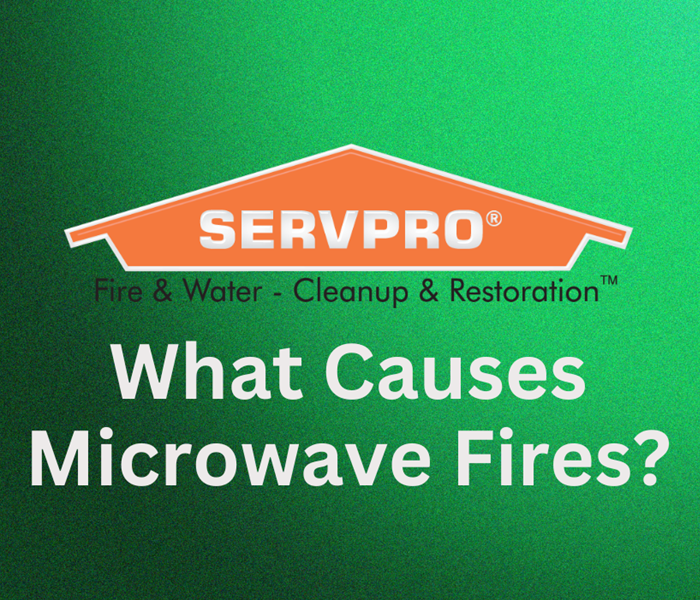What Causes Microwave Fires?
5/4/2023 (Permalink)
Microwaves have become an essential part of modern kitchens, allowing us to quickly heat up food and beverages. One of the most dangerous risks associated with microwaves is the possibility of a fire.
The leading cause of microwave fires is the use of inappropriate containers or dishes. Microwave-safe containers are designed to withstand the high heat generated by the microwave, while other containers may melt, warp, or even catch fire.
Common materials that are not suitable for microwaving include aluminum foil, metal, plastic containers that are not labeled as microwave-safe, and dishes with metallic or gold paint.
Another factor that can cause microwave fires is the buildup of grease or food residue inside the appliance. When food particles accumulate on the walls or ceiling of the microwave, they can overheat and catch fire.
It is essential to clean your microwave regularly, especially after cooking greasy or fatty foods. To clean your microwave, use a damp cloth or sponge to wipe the interior surfaces, and avoid using abrasive cleaning agents.
Furthermore, overheating food can also lead to microwave fires. When food is cooked for too long, or if the microwave's power settings are set too high, the food can overheat and ignite. It is vital to follow the cooking instructions carefully and to stop cooking the food once it has reached the recommended temperature.
Lastly, a faulty or malfunctioning microwave can also cause fires. If your microwave is making unusual noises, sparks, or emits smoke, it is essential to stop using it immediately and have it inspected by a professional.
Microwave fires can be dangerous and should be avoided at all costs. To prevent microwave fires, use only microwave-safe containers, keep your microwave clean, do not overheat food, and have any malfunctioning microwave inspected by a professional. By following these safety tips, you can enjoy the convenience of a microwave without putting yourself or your home at risk.
SERVPRO Of Newton Wellesley is The #1 Choice in Cleanup and Restoration for residential and commercial buildings’ fire, mold, water, and storm damage.
We service Dedham, East Dedham, Endicott, Medfield, Norwood Centre, Norwood, Walpole, MA, and Westwood, MA






 24/7 Emergency Service
24/7 Emergency Service
